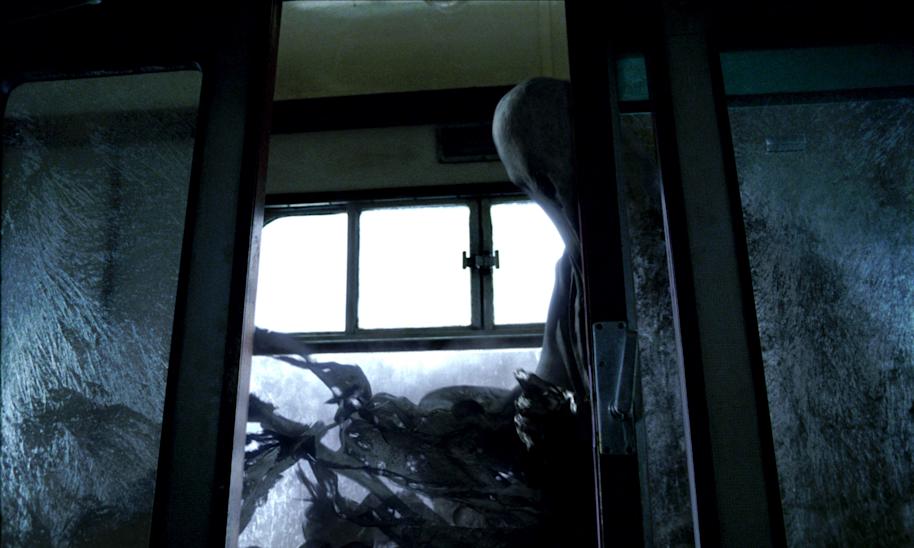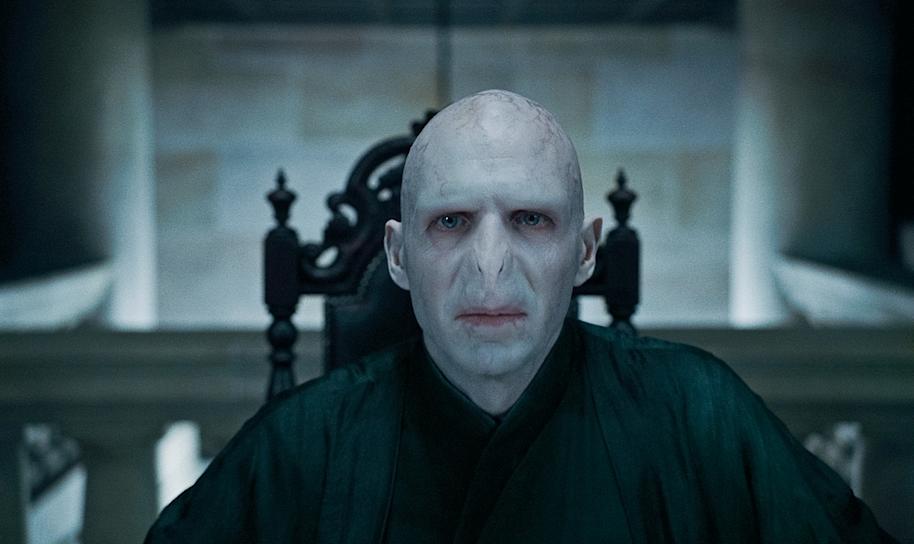Spoiler warning: this article contains spoilers for Harry Potter and the Cursed Child.
Gellert Grindelwald
First up is the original villain; or at least, the one who appeared first in the history books. Grindelwald is slightly tricky, though, because for all his terrible deeds, he was a complicated character. Perhaps it was his relationship with Dumbledore, perhaps it was refusing to give up the Elder Wand to Voldemort, perhaps it was the remorse he apparently expressed in Nurmengard – whatever it is, he seemed less straightforwardly evil than, say, Voldemort.
But maybe we were just taken in by his infamous charm. Dumbledore was, after all. So was Queenie Goldstein. Not forgetting Credence Barebone, a vulnerable young man manipulated by a Dark Wizard to support his own sinister ideology…
Yes, on second thoughts, Grindelwald was pretty evil. Good thing we put him first on the list.
Draco Malfoy
From the original dark wizard to the original school bully, Draco Malfoy was a villain in a Hogwarts cloak from the outset (literally, given we first met him in Madam Malkin’s robe shop.) OK, he wasn’t Death Eater-level in the end and, yes, you could say his family background gave him few options other than villainy, but did he have to take it quite so far?
In Cursed Child, we saw an older, more chastened Draco Malfoy who cared deeply for his wife and only son, even if he struggled to express those feelings. But still. Ron in particular found it hard to forgive Malfoy for the terrible things he’d done. He called Hermione a Mudblood. Repeatedly. He nearly got Buckbeak killed, he did get Hagrid sacked, and even though he failed at the final hurdle, he let Death Eaters into Hogwarts which ultimately resulted in Dumbledore’s death. Sorry Draco, but we see Ron’s point.
Peter Pettigrew
Perhaps even worse than the relentless meanness of a bully is the unexpected betrayal of an old friend. Which brings us to Peter Pettigrew, the man who was a better rat than he was a wizard. From scurrying around in the dust kicked up by his stronger, more popular friends to serving the absolute worst villain on this list (we’re getting to him, but You Know Who we mean), Peter Pettigrew may not always have looked like the archetypal villain – indeed, Harry pictured him as a Neville Longbottom-type character – but the depth of his double-dealing knew no bounds. Put it this way: Peter Pettigrew could never have pulled the Sword of Gryffindor out of a hat.

Dementors
We can’t name a single individual one, but as villains go the Dementors are right up there. Creepy cloak? Tick. Slimy, scabbed, claw-like hands? Tick. Loud, rasping, disturbing breaths? Tick. General aura of darkness and despair? Tick and tick. Peter Pettigrew may have been an unlikely villain but you absolutely could not say that about a Dementor. These were creatures that wanted to suck out your soul and kill every bit of joy. They literally brought the dark with them, wherever they went.
Dolores Umbridge
Speaking of joy-thieves, she might have preferred to cloak herself in pink and fill her office with fluffy kittens, but Dolores Jane Umbridge was every bit as dark as the villainous figures she liked to surround herself with. Indeed, she was the one who sent Dementors to attack Harry in Little Whinging. And obviously it didn’t end there – Umbridge’s list of mean tricks was about as long as her list of Educational Decrees. Forcing Harry to write lines on his own skin, giving Filch approval to whip students, nailing Mad-Eye Moody’s eye to her office door, creating dangerous propaganda about Muggle-born witches and wizards. No, there was nothing fluffy about Dolores Umbridge.
Bellatrix Lestrange
Equally un-fluffy but far less bothered about hiding it, Bellatrix Lestrange was one of Voldemort’s Death-Eaters-in-chief. Seemingly devoid of any family feeling, she had no trouble murdering her own cousin, disowning her sister, and later killing Tonks, the daughter of that same sister, for having the audacity to marry a werewolf. Bellatrix did, however, feel huge affinity for her master. So fanatical was she in her loyalty to Voldemort that she willingly agreed to murder Tonks at his suggestion.
And of course it was not just her own family members Bellatrix tormented. She killed Dobby – poor Dobby – inflicted torture on Hermione, and drove Neville Longbottom’s parents insane. During the Battle of Hogwarts, seconds before she was killed by Molly Weasley, Bellatrix was said to be “as mad as her master,” and that’s not a description we would refute.

In this image:
Lord Voldemort
Which brings us to Bellatrix’s master himself. Tom Marvolo Riddle. The Dark Lord. He Who Must Not Be Named. You Know Who. Lord Voldemort.
A true Dark Wizard and villain of the highest order, Voldemort was someone who turned all his own insecurities inside out, becoming fixated on pure-blood status at a disturbingly early age and harnessing his prodigious magical skill in pursuit of this dark ideology: tormenting anyone weaker, collecting followers, murdering those who didn’t fit into his vision. And of course there’s that whole splitting-your-soul-into-Horcruxes thing.
Here’s a wizard who didn’t understand love, and who would never show remorse. That’s about as bad as it gets.
Delphini Diggory
And sadly for Harry and his family, Voldemort’s ideals didn’t die with him. Years after Voldemort’s defeat, his daughter – the product not of a loving relationship, but of an apparently brief incident between a cruel and despotic leader and the fanatical, arguably insane, Bellatrix – would land in Harry’s life to wreak as much havoc as her parents. As Voldemort’s daughter, Delphi inherited many of her father’s obsessions, as well as his talent for charming others into carrying out her deeds and turning the world on its head. She liked a prophecy as much as her father, too.
But where her father’s weakness was his inability to understand love, Delphi’s was almost the opposite. So desperate was she to see her father and so great her need for his approval, that it ultimately led to her downfall. So perhaps she wasn’t quite as villainous as either of her parents, in the end.



